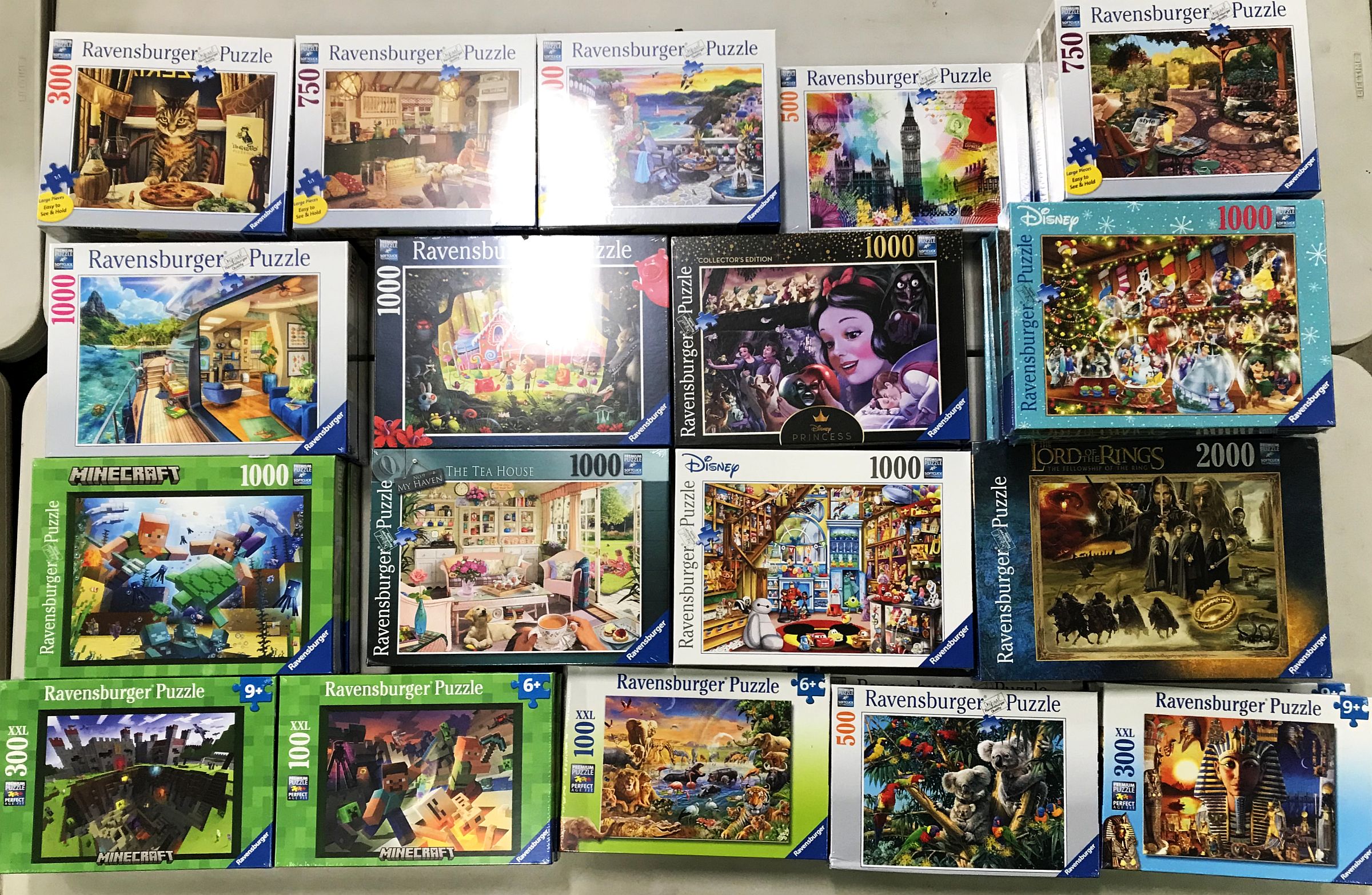Whether you’re a beginner looking to dip your toes into the world of puzzles or an expert seeking your next big challenge, finding the perfect puzzle can be a rewarding adventure. Puzzles aren’t just a fun way to pass the time—they offer incredible benefits for people of all ages, from kids to seniors. Let’s dive into how to choose the right puzzle for your skill level and explore why working on puzzles is so great for everyone. Once you have an idea of what puzzles are right for you, you can check out the fun options Fundemonium has in stock.

Why Puzzles Are Great for All Ages
Before we get into the nitty-gritty of choosing the perfect puzzle, let’s talk about why puzzles are such a fantastic activity.
For Children:
Puzzles are an excellent way for kids to develop essential skills. According to a study by the University of Chicago, working on puzzles improves spatial skills, which are crucial for learning mathematics, science, and technology. Puzzles help children enhance their problem-solving abilities, hand-eye coordination, and fine motor skills. Plus, completing a puzzle gives kids a great sense of accomplishment and boosts their confidence.
For Adults:
For adults, puzzles are a fantastic way to relax and unwind. They offer a break from the constant digital stimulation of screens and provide a peaceful, meditative activity. Research suggests that engaging in puzzles can improve cognitive function and delay the onset of dementia and Alzheimer’s disease. Puzzles also promote patience, attention to detail, and perseverance.
For Seniors:
Puzzles are particularly beneficial for seniors, offering both cognitive and emotional benefits. Seniors who regularly engage in puzzles and brain games have better mental function and memory. Puzzles can help maintain cognitive abilities, provide a sense of purpose, and offer a social activity when completed with friends or family.
Choosing the Right Puzzle for Your Skill Level
Now that we know why puzzles are great, let’s talk about how to choose the perfect one for you or your loved ones.
For Beginners:
If you’re new to puzzles, start with something manageable to avoid frustration. Look for puzzles with fewer pieces, typically between 100 to 300 pieces. Themes like nature scenes, animals, or cartoons can make the process more enjoyable. There are many brands out there that offer high-quality puzzles yet fairly easy puzzles that are perfect for beginners.
For Intermediate Puzzlers:
Once you’re comfortable with simpler puzzles, it’s time to step up the challenge. Puzzles with 500 to 1,000 pieces are a great next step. These puzzles offer more complexity and detail, keeping you engaged for longer periods. Look for puzzles with more intricate designs and a variety of colors to keep things interesting.
For Experts:
If you’re an experienced puzzler seeking a real challenge, go for puzzles with 1,500 pieces or more. These puzzles often feature highly detailed and intricate images, making them a true test of patience and skill. These challenging puzzles will keep you occupied for hours, if not days. For the ultimate challenge, try 3D puzzles or gradient puzzles that have minimal color differentiation.
Tips for a Better Puzzling Experience
- Sort the Pieces: Start by sorting the pieces by color and edge pieces. This makes it easier to assemble the border first and then fill in the middle.
- Use a Puzzle Mat: A puzzle mat allows you to roll up your puzzle and store it without losing progress. This is especially useful for larger puzzles.
- Take Breaks: Don’t hesitate to take breaks if you feel stuck. Sometimes stepping away and coming back with fresh eyes can help you spot that elusive piece.
- Work on Sections: Focus on completing small sections of the puzzle at a time. This can make the task less daunting and more manageable.
Puzzles as a Social Activity
Puzzles can also be a fantastic social activity. Invite friends or family to join you for a puzzle night. It’s a great way to bond, communicate, and collaborate on a common goal. For seniors, this social interaction can combat feelings of loneliness and isolation, providing a sense of community and belonging.

Visit Fundemonium for All Your Puzzle Needs
Choosing the perfect puzzle is all about finding the right balance between challenge and enjoyment. Whether you’re a beginner, an intermediate puzzler, or an expert, there’s a perfect puzzle out there waiting for you. Remember, the benefits of puzzle-solving go beyond just fun—they improve cognitive skills, provide a sense of achievement, and offer a wonderful way to connect with others.
So, next time you’re at Fundemonium, take a moment to browse our extensive collection of puzzles. From easy to expert levels, we have something for everyone. Happy puzzling!

